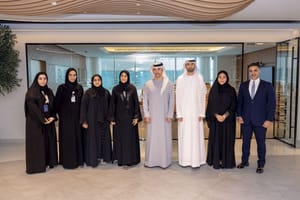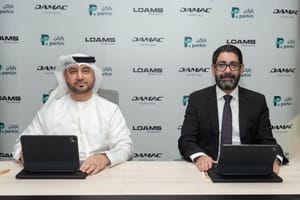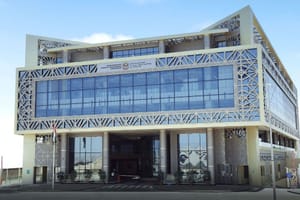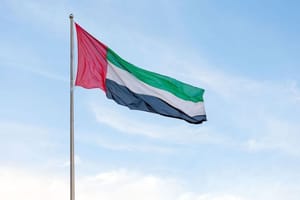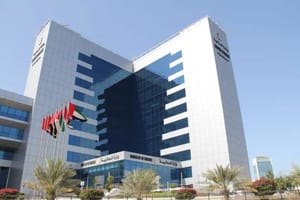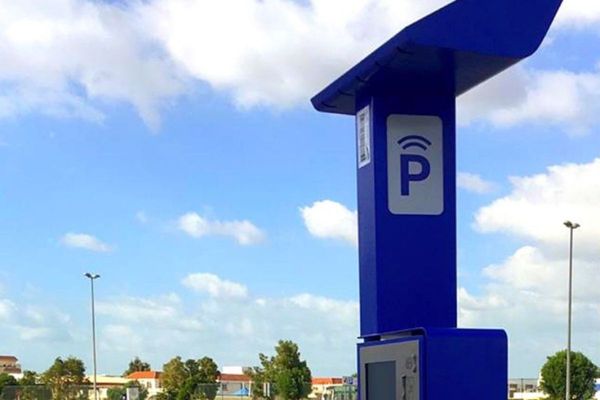The United Arab Emirates today called for a positive, pragmatic approach to the energy transition and practical climate action to ensure energy security and economic progress.
Delivering the opening remarks at the sixth edition of the Atlantic Council Global Energy Forum at Expo 2020 Dubai, Dr. Sultan bin Ahmed Al Jaber, Minister of Industry and Advanced Technology and Special Envoy for Climate Change, explained that current volatility in energy markets is a result of geopolitical tensions, an unrealistic approach to the energy transition and long-term under-investment in oil and gas.
"We are all witnessing first-hand how sensitive energy markets are to geopolitical shocks. Yet, the current volatility in oil prices is the result of a deeper underlying structural issue. Long-term under-investment in oil and gas has left markets more exposed to risks of any kind and wherever they take place.
"According to the IEA (International Energy Agency), annual investment in oil and gas is $200 billion below where it needs to be, and that is just to keep up with demand through 2030. Near-term, we are also seeing markets tighten, with demand up almost 3 million barrels over the last year and is expected to reach pre-pandemic levels by fourth quarter of this year,"
Dr. Al Jaber said.
"In short," he added, "the push to divest from hydrocarbons has met a stark reality."
Speaking in front of a live audience that included Suhail bin Mohammed Al Mazrouei, Minister of Energy and Infrastructure, as well as top energy chief executives and government officials, Dr. Al Jaber called for energy transition policies that are "tailored to real-world scenarios."
"While we fully embrace the energy transition, we need to recognise that policies should be tailored to real-world scenarios. And they should follow the basic rule of progress that if we fail to plan, our plan will fail.
"An unrealistic approach that ignores basic economics will only lead to tighter markets that are more exposed to geopolitical shocks. Divesting from the energy sources that drive the global economy will lead to a systemic supply crunch that erodes economic growth. Put simply, we cannot and we must not unplug the current energy system, before we have built the new one," Dr. Al Jaber said.
He pointed out that policymakers around the world, "including many in Europe," are now starting to come to terms with these realities.
"They are acknowledging that the transition will take time. They are pivoting their policies to ensure that near-term energy security is not undermined by long-term goals. And they have now come to the same conclusion that we came to a while ago, that we need to hold back emissions, not progress."
The UAE is adopting a balanced, proactive and positive approach to the energy transition that is "pro-growth, pro-sustainability, pro-prosperity and pro-climate," according to Dr. Al Jaber.
"As such, we are increasing investments in low-carbon and no-carbon energy sources. We are expanding production capacity of the world’s least carbon intensive oil to more than 5 million barrels per day, while also growing our renewable portfolio five-fold. We are growing our natural gas capacity by 30 percent, enhancing our ability to supply more LNG (liquefied natural gas).
"We are doing all this, with a strategy that is based on a sound business case and a belief that a realistic, well-planned energy transition provides a resilient pathway for new industries, new jobs, and long-term sustainable economic growth,"
Dr. Al Jaber said.
He explained the UAE is driving a new low-carbon, high-growth economic model that will guide its development for the next 50 years. He credited the UAE Leadership’s wisdom and foresight for laying the foundation for the country’s progressive approach to climate action that has ensured it is well-positioned to capitalise on the opportunities created by the energy transition.
"When the UAE began its investments in renewable energy over 15 years ago, the economic case was difficult to make. But our leadership’s vision has been verified by hard facts. And today, the UAE is home to the three largest and lowest cost solar plants in the world."
The Atlantic Council Global Energy Forum is a premier international gathering of government, industry, and thought leaders that addresses the global energy agenda for the year. The forum is held in partnership with the UAE Ministry of Energy and Infrastructure as part of the World Government Summit.
News Source: Emirates News Agency



